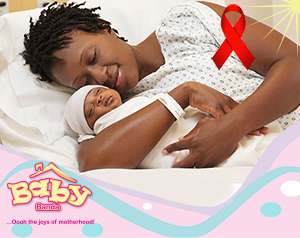Anti-HIV medications during labour and delivery. Intrapartum care is the management of women from the onset of labour to delivery.
This period poses the greatest risk for transmission of HIV from the mother to the child (MTCT) with 10 to 20 per cent of exposed infants becoming infected at this time in the absence of any intervention. Women infected with HIV take anti-HIV medications during labour and delivery to reduce the risk of mother-to-child transmission of HIV. During labour and delivery, women continue to take the anti-HIV medications they took throughout their pregnancies. They also receive an anti-HIV medication called AZT intravenously to protect their babies from HIV in the mother’s genital fluids or blood during labour and delivery. Talk to your health care provider about the use of anti-HIV medications during labour and delivery well before your due date.
The following guidelines should be followed for all women admitted to labour and delivery units:
• Minimise vaginal examinations.
• Use aseptic techniques in conducting delivery.
• Avoid routine artificial rupture of membranes or breaking the water.
• Avoid unnecessary trauma during delivery.
• Minimise the risk of postpartum haemorrhage.
• Use safe blood transfusion practices.
Anti-HIV medications during labour and delivery
Vaginal vs. Caesarean delivery
The risk of mother-to-child transmission of HIV is low for women who take anti-HIV medications during pregnancy and have a viral load less than 1,000 copies/mL near the time of delivery.
For some HIV-infected mothers, a scheduled cesarean delivery (also called a C-section) at 38 weeks of pregnancy (2 weeks before the due date) can reduce the risk of mother-to-child transmission of HIV. A scheduled cesarean delivery is recommended for HIV-infected women who:
• have not received anti-HIV medications during pregnancy;
• have a viral load greater than 1,000 copies/mL or an unknown viral load near the time of delivery.
If, before her scheduled caesarean delivery, a woman’s water breaks or she goes into labour, caesarean delivery may not reduce the risk of mother-to-child transmission of HIV. If there is not another pregnancy-related reason to have a caesarean delivery, the risks of going ahead with the scheduled caesarean delivery may be greater than the benefits. Depending on an individual woman’s situation, vaginal delivery may be the best alternative to planned caesarean delivery.
After your baby is born, you and your health care provider may decide to stop or change your anti-HIV regimen. The decisions to continue, change, or stop your anti-HIV medications will depend on several factors:
• current expert recommendations on the use of anti-HIV medications.
• your CD4 count and viral load.
• issues that make it hard to take medications exactly as directed.
• whether or not your partner is infected with HIV.
• the preferences of you and your health care provider.
Don’t stop taking any of your anti-HIV medications without first talking to your health care provider. Stopping your medications may limit the number of anti-HIV medications that will work for you and may cause your HIV infection to worsen.













